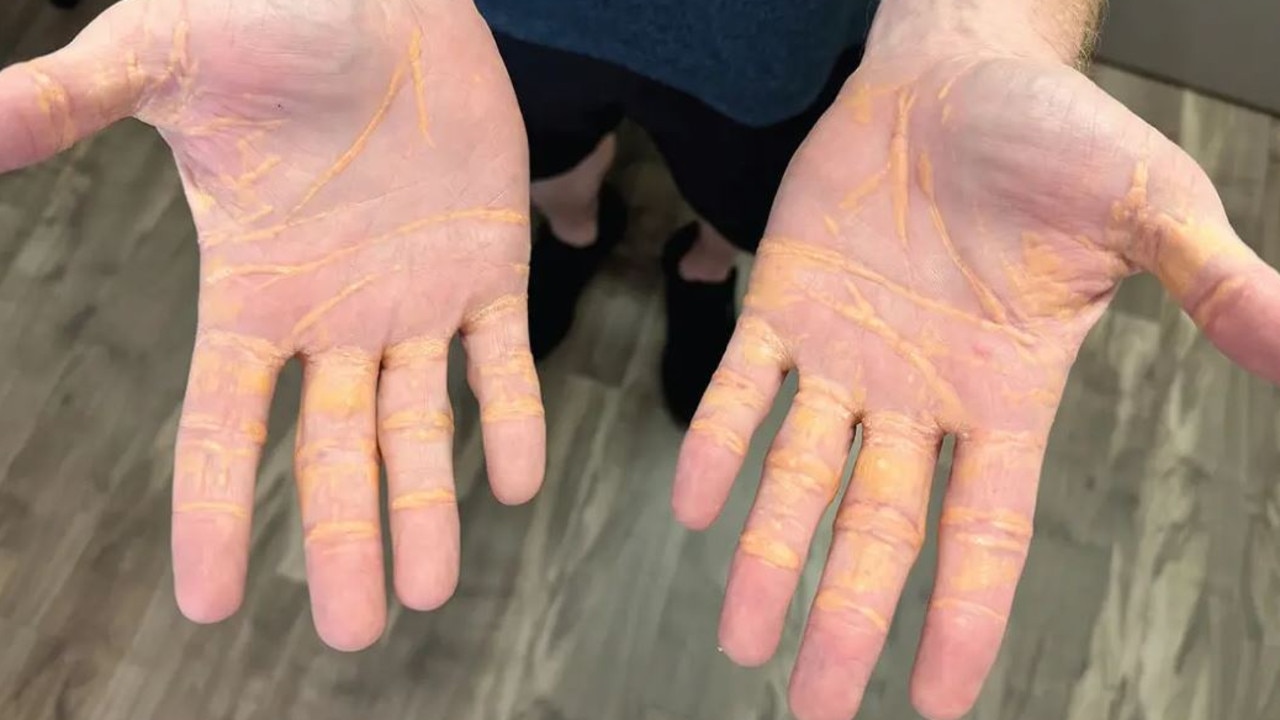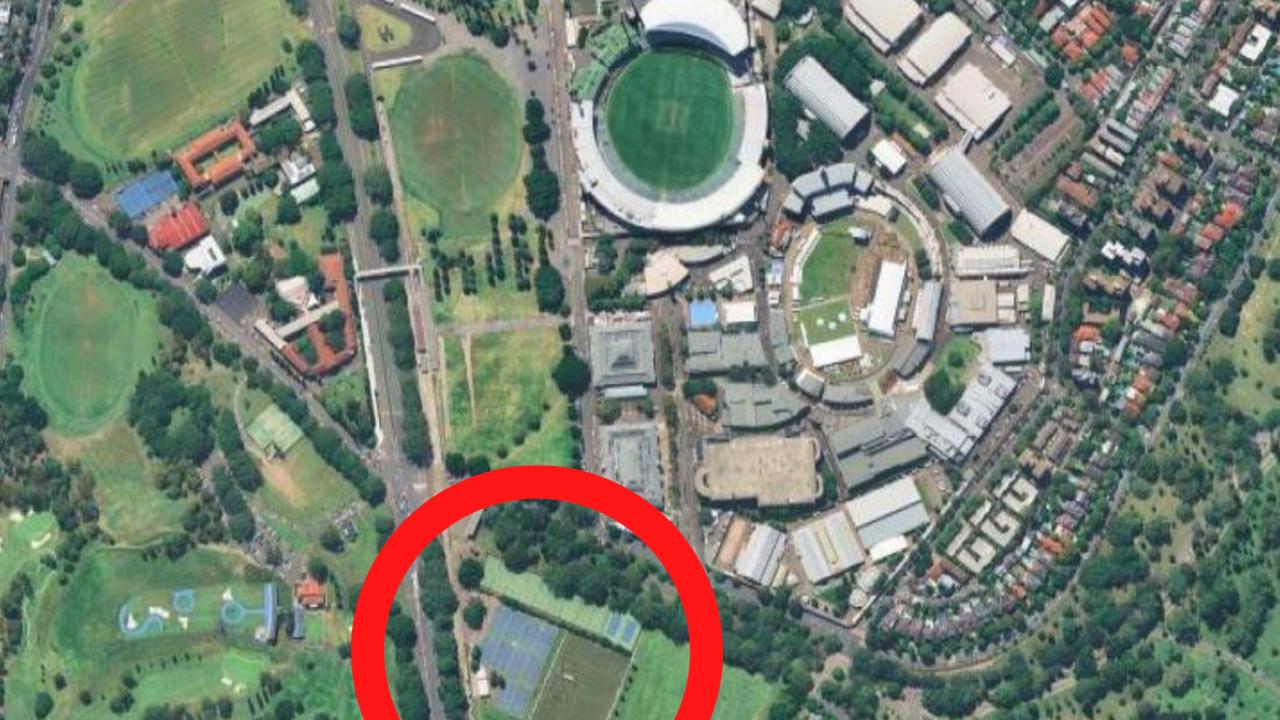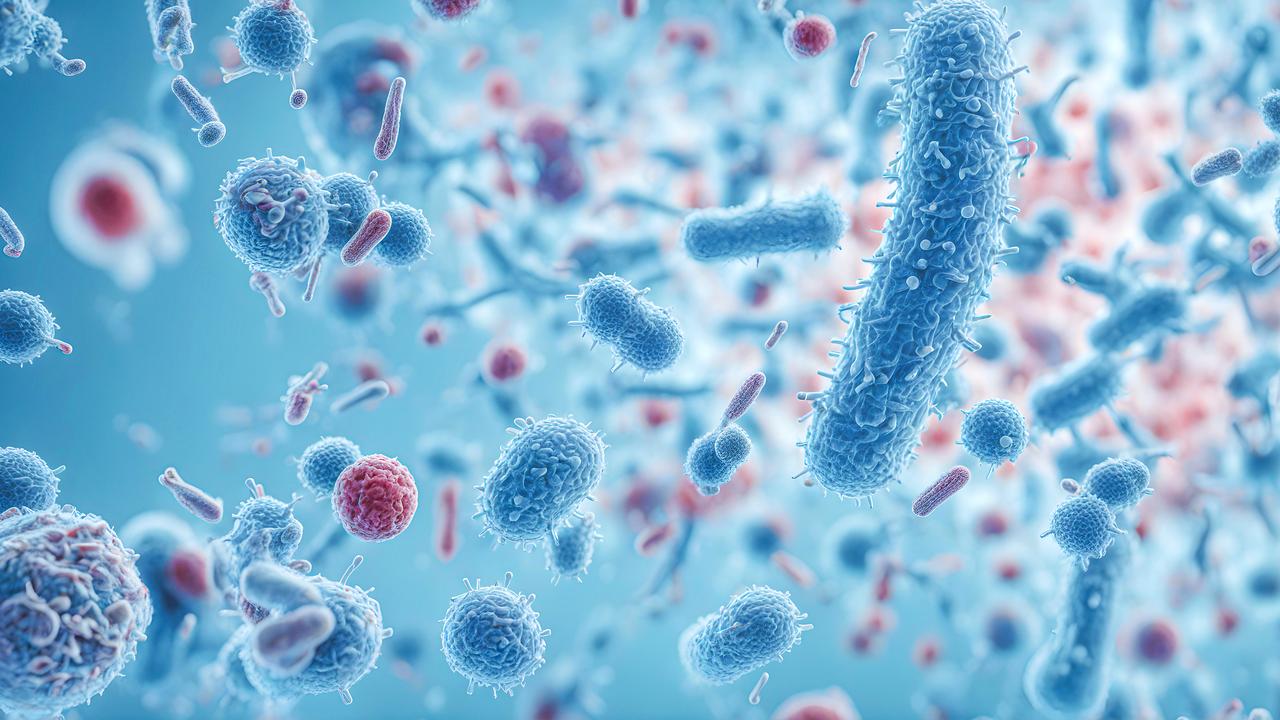World Health Organisation’s coronavirus advice
The World Health Organisation has published advice on everything from how to properly use a face mask to whether the virus can survive on surfaces. This is what you need to know.
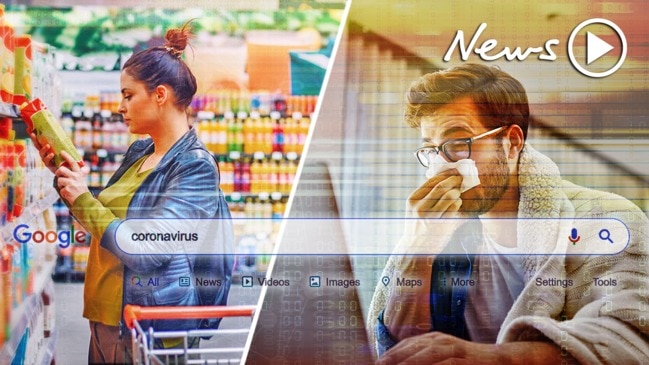
Countries around the world are taking increasingly drastic measures to slow the coronavirus outbreak.
Stock markets have plummeted, schools have been closed and millions of people have been put into lockdown, as the number of confirmed COVID-19 infections grow.
More than 113,000 people have been infected across more than 100 countries, and more than 4000 people have died.
From protecting yourself to how to properly use a face mask, here is the World Health Organisation’s (WHO) expert advice on how to protect yourself from COVID-19.
RELATED: Follow the latest coronavirus updates
WHAT IS A CORONAVIRUS?
Coronaviruses are a large family of viruses which may cause illness in animals or humans.
In humans, several coronaviruses are known to cause respiratory infections ranging from common colds to more severe diseases.
WHAT IS COVID-19?
COVID-19 is the infectious disease caused by the most recently discovered coronavirus.
This new virus and disease were unknown before the outbreak began in Wuhan, China, in December 2019.
WHAT ARE THE SYMPTOMS OF COVID-19?
The most common symptoms of COVID-19 are fever, tiredness and dry cough.
Some patients may have aches and pains, nasal congestion, runny nose, sore throat or diarrhoea. These symptoms are usually mild and begin gradually.
Some people become infected but don’t develop any symptoms and don’t feel unwell.
Most people (about 80 per cent) recover from the disease without needing special treatment, while around 1 in 6 people who get infected will become seriously ill and develop difficulty breathing.
RELATED: Critical virus questions answered
HOW DOES COVID-19 SPREAD?
People can catch COVID-19 from others who have the virus.
The disease can spread from person to person through small droplets from the nose or mouth which are spread when a person with COVID-19 coughs or exhales.
These droplets land on objects and surfaces around the person, and other people than catch the virus by touching these objects or surfaces, then touching their eyes, nose or mouth.
People can also catch COVID-19 if they breathe in droplets from a person with COVID-19 who coughs out or exhales droplets.
WHAT CAN I DO TO PROTECT MYSELF AND PREVENT THE SPREAD OF DISEASE?
Protection measures for everyone
You can reduce your chances of being infected or spreading COVID-19 by taking some simple precautions:
• Regularly and thoroughly clean your hands with an alcohol-based hand rub or wash them with soap and water.
• Maintain at least one metre distance between yourself and anyone who is coughing or sneezing.
• Avoid touching eyes, nose and mouth.
• Make sure you, and the people around you, follow good respiratory hygiene. This means covering your mouth and nose with your bent elbow or tissue when you cough or sneeze. Then dispose of the used tissue immediately.
• Stay home if you feel unwell. If you have a fever, cough and difficulty breathing, seek medical attention and call in advance. Follow the directions of your local health authority.
• Keep up to date on the latest COVID-19 hot spots. If possible, avoid travelling to places – especially if you are an older person or have diabetes, heart or lung disease.
Protection measures for people who are in or have recently visited (past 14 days) areas where COVID-19 is spreading
• Follow the guidance outlined above.
• Self-isolate by staying at home if you begin to feel unwell, even with mild symptoms such as headache, low grade fever and slight runny nose, until you recover. If it is essential for you to have someone bring your supplies or to go out, eg to buy food, then wear a mask to avoid infecting other people.
• If you develop fever, cough and difficulty breathing, seek medical advice promptly as this may be due to a respiratory infection or other serious condition. Call in advance and tell your provider of any recent travel or contact with travellers.
HOW LIKELY AM I TO CATCH COVID-19?
According to the WHO, your risk of catching the virus depends on where you are, and specifically if there’s an outbreak unfolding there.
For most people in most locations, the risk of catching COVID-19 is still low. However, there are now places around the world where the disease is spread – and for people living in or visiting these areas, the risk of catching COVID-19 is higher.
Be sure to comply with any local restrictions on travel, movement or large gatherings. Co-operating with disease control efforts will reduce your risk of catching or spreading COVID-19.
As has been shown in China and some other countries, COVID-19 outbreaks can be contained and transmission stopped.
RELATED: Biggest coronavirus myths busted
SHOULD I WORRY ABOUT COVID-19?
Illness due to COVID-19 infection is generally mild, especially for children and young adults.
However, it can cause serious illness: about 1 in every 5 people who catch it require hospital care, making it quite normal for people to worry about how the COVID-19 outbreak will affect them and their loved ones.
The WHO advises channelling your concerns into actions to protect yourself, your loved ones and your community. First and foremost among these actions is regular and thorough handwashing and good respiratory hygiene.
Secondly, keep informed and follow the advice of the local health authorities including any restrictions put in place on travel, movement and gatherings.
WHO IS AT RISK OF DEVELOPING SEVERE ILLNESS?
While scientists are still learning about how COVID-19 affects people, older people and those with pre-existing medical conditions (such as high blood pressure, heart disease, lung disease, cancer or diabetes) appear to develop serious illness more often than others.
ARE ANTIBIOTICS EFFECTIVE IN PREVENTING OR TREATING THE COVID-19?
No. Antibiotics do not work against viruses, they only work on bacterial infections.
As COVID-19 is caused by a virus, antibiotics do not work and should not be used as a means of prevention or treatment of COVID-19.
ARE THERE ANY MEDICINES OR THERAPIES THAT CAN PREVENT OR CURE COVID-19?
While some western, traditional or home remedies may provide comfort and alleviate COVID-19 symptoms, there is no evidence that current medicine can prevent or cure the disease.
The WHO does not recommend self-medication with any medicines, including antibiotics, as a prevention or cure for COVID-19.
IS THERE A VACCINE, DRUG OR TREATMENT FOR COVID-19?
To date, there is no vaccine and no specific antiviral medicine to prevent or treat COVID-19. However, those affected should receive care to relieve symptoms. People with serious illness should be hospitalised. Most patients recover thanks to supportive care.
Possible vaccines and some specific drug treatments are under investigation, and the WHO is co-ordinating efforts to develop vaccines and medicines to prevent and treat COVID-19.
IS COVID-19 THE SAME AS SARS?
The virus that causes COVID-19 and the one that caused the outbreak of Severe Acute Respiratory Syndrome (SARS) in 2003 are related to each other genetically, but the diseases they cause are quite different.
SARS was more deadly but much less infectious than COVID-19.
RELATED: How coronavirus will change your routine
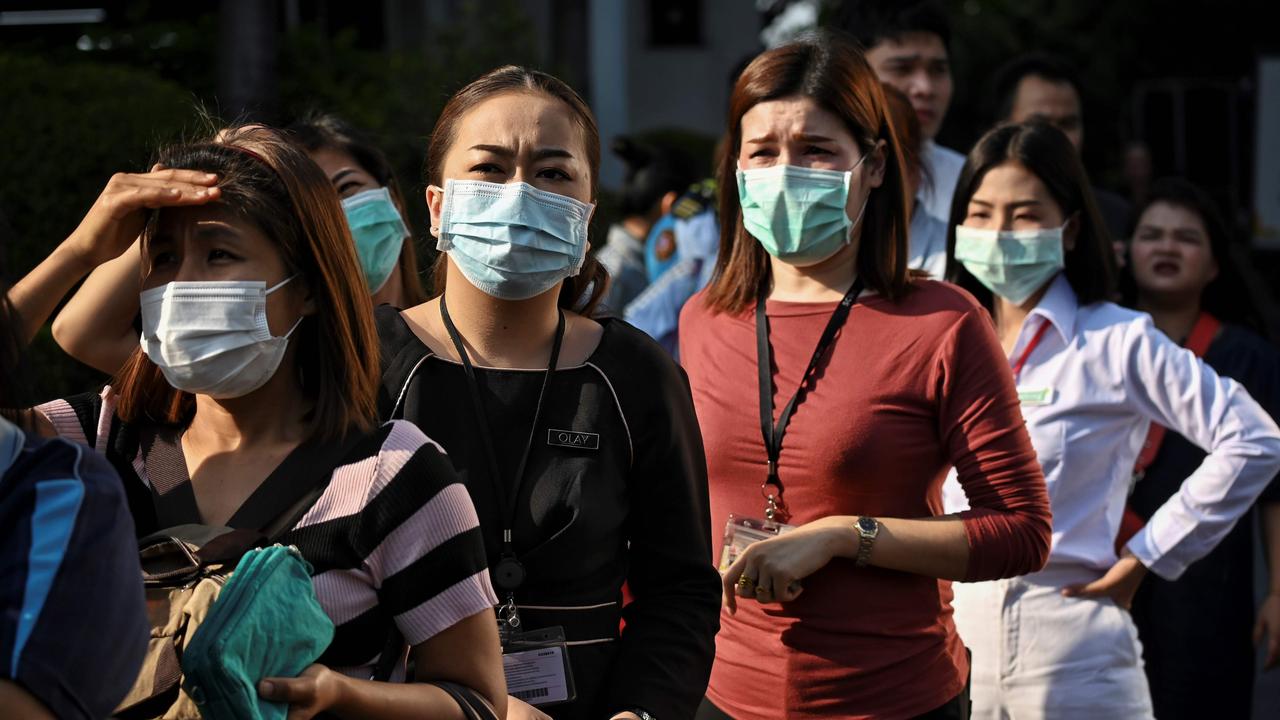
SHOULD I WEAR A MASK TO PROTECT MYSELF?
The WHO advises that you only wear a mask if you are ill with COVID-19 symptoms (especially coughing) or looking after someone who may have COVID-19.
A disposable masks can only be used once. If you are not ill or looking after someone who is, then you are wasting a mask. There is a worldwide shortage of masks, so WHO urges people to use masks wisely.
HOW TO PUT ON, USE, TAKE OFF AND DISPOSE OF A MASK?
• Remember, a mask should only be used by health workers, care takers, and individuals with respiratory symptoms, such as fever and cough.
• Before touching the mask, clean hands with an alcohol-based hand rub or soap and water.
• Take the mask and inspect it for tears or holes.
• Orient which side is the top side (where the metal strip is).
• Ensure the proper side of the mask faces outwards (the coloured side).
• Place the mask to your face. Pinch the metal strip or stiff edge of the mask so it moulds to the shape of your nose.
• Pull down the mask’s bottom so it covers your mouth and your chin.
• After use, take off the mask; remove the elastic loops from behind the ears while keeping the mask away from your face and clothes, to avoid touching potentially contaminated surfaces of the mask.
• Discard the mask in a closed bin immediately after use.
• Perform hand hygiene after touching or discarding the mask – use alcohol-based hand rub or, if visibly soiled, wash your hands with soap and water.
HOW LONG IS THE INCUBATION PERIOD FOR COVID-19?
The “incubation period” is the time between catching the virus and beginning to have symptoms of the disease.
Most estimates of the incubation period for COVID-19 range from 1-14 days, most commonly around five days, and will be updated as more data becomes available.
CAN HUMANS BECOME INFECTED WITH THE COVID-19 FROM AN ANIMAL SOURCE?
Coronaviruses are a large family of viruses that are common in animals. Occasionally, people get infected with these viruses which may then be spread to other people.
According to the WHO, possible animal sources of COVID-19 have not yet been confirmed.
To protect yourself, such as when visiting live animal markets, avoid direct contact with animals.
Ensure good food safety practices at all times, and handle raw meat, milk or animal organs with care to avoid contamination of uncooked foods and avoid consuming raw or undercooked animal products.
RELATED: Weird ‘untrue’ virus advice being spread
CAN I CATCH COVID-19 FROM MY PET?
You cannot catch COVID-19 from your pet. The WHO said that there is no evidence that companion animals or pets such as cats and dogs have been infected or could spread the virus that causes COVID-19.
HOW LONG DOES THE VIRUS SURVIVE ON SURFACES?
According to the WHO, it is not certain how long the virus that causes COVID-19 survives on surfaces, but it seems to behave like other coronaviruses.
Studies suggests that coronaviruses (including preliminary information on the COVID-19 virus) may persist on surfaces for a few hours or up to several days.
This may vary under different conditions (eg type of surface, temperature or humidity of the environment).
If you think a surface may be infected, clean with simple disinfectant to kill the virus and protect yourself and others. Clean your hands with an alcohol-based hand rub or wash them with soap and water. Avoid touching your eyes, mouth, or nose.
IS IT SAFE TO RECEIVE A PACKAGE FROM ANY AREA WHERE COVID-19 HAS BEEN REPORTED?
It is safe to receive a package from an area where coronavirus has been reported.
The likelihood of an infected person contaminating commercial goods is low and the risk of catching the virus that causes COVID-19 from a package that has been moved, travelled, and exposed to different conditions is also low.
IS THERE ANYTHING I SHOULD NOT DO?
The following measures are not effective against COVID-19 and can be harmful:
• Smoking
• Wearing multiple masks
• Taking antibiotics.
According to the WHO, if you have fever, cough and difficulty breathing in any case you should seek medical care early to reduce the risk of developing a more severe infection and be sure to share your recent travel history with your healthcare provider.

